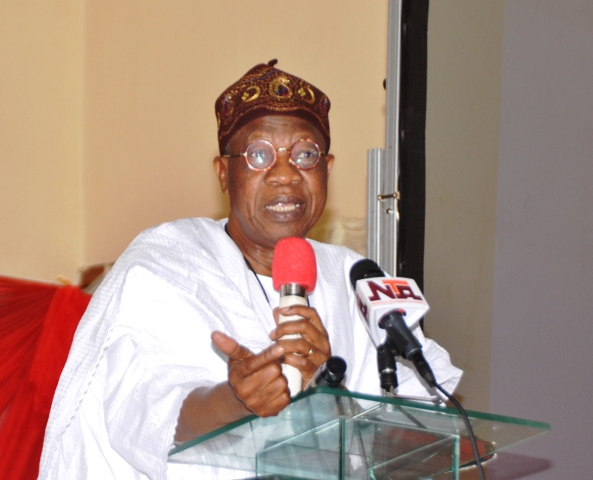Forex, T-bills, other markets turnover hit N40trn in Q1

…As Naira gains at investors FX window
…Foreign reserves steady at $47.865bn
Total transaction turnover in the Nigeria’s Foreign Exchange (Forex) market, Foreign Exchange Derivatives; Treasury Bills (T.bills) market, FGN bonds; Other Bonds; Eurobonds; Repurchase Agreements/Buy-Backs and Unsecured Placements/Takings, between January and March, 2018 stood at a whopping N39.929 trillion or $118.898 billion, The Daily Times checks revealed.
This is just as the local currency, Naira, appreciated against the US Dollar on Friday in the Investors & Exporters (I&E) FX window at N361.05, which represented 0.09 per cent, even though it traded high at N363 after trading began at an appreciable rate of N360.27 to the dollar.
Data obtained by our correspondent from the FMDQ OTC, however, showed that T-bills contributed the largest to overall turnover, accounting for 39.48 per cent of the market, while FX market transactions (Spot FX and FX Derivatives) accounted for 36.74 per cent.
Repurchase Agreements (Repos)/Buy-Backs product categories (Repos/Buy-backs) accounted for 16.30 per cent, and Bonds and Unsecured Placements & Takings representing 6.60 per cent and 0.88 per cent respectively, of overall market turnover.
T-bills transactions turnover topped with N15.765trillion or $46.931billion, as at the end of first quarter, 2018. This followed by Foreign Exchange value of N9.693 trillion or $28.858 billion during the same period, while Foreign Exchange Derivatives stood at N4.975 trillion or $14.826 billion.
The statistics, also, showed that the FGN Bonds recorded total turnover of N2.580 billion or $7.688 billion, whilst other Bonds figure declared stood at N41.569 billion or $124 million.
Trading activities in the Eurobonds settled at N14.248 billion or $42 million, turnover recorded on Repurchase Agreements/Buy-Backs was N6.509 trillion or $19.386 billion. But Unsecured Placements/Takings only traded N350 billion or $1.043 billion.
Financial analysts pointed out T-Bills have been one of the most sought-after investments in Nigeria for the better part of two years considering rise in true yields, as the CBN raced to mop up liquidity from the economy, while most investors and even banks were all part of this great bonanza.
The apex bank, which is in the driver’s seat for setting monetary policy in the country, has started reducing the amount of cash it is sucking out of the economy.
Treasury bills which were its main monetary policy tool for keeping rates high and exchange rate stability is now being sold in a manner that most investors are now terming undesirable for their investment needs. Rates are dropping fast and soon we could be back to single-digit interest rates.
Meanwhile, the nation’s foreign reserves had appreciated further to $47.865 billion as of Thursday, May 10, 2018 against $47.804 billion it stood a week ago.
The latest figure indicated that the foreign reserves continued on a steady increase in 2018, which is attributed to increase in global oil prices and stable production that has continued to shore up the reserves and support the CBN’s interventions in the market.
The foreign reserves gained $1.24 billion or 2.67 per cent in April to close at $47.49 billion from $46.26 billion it opened in April.
The foreign reserves monitored by CBN appreciated by $7.44 billion in first quarter of 2018.
The external reserves opened this year at $38.77 billion to close March 28, 2018 at $46.21 billion, an increase of 19.2 per cent this year.
“New foreign exchange measures, rising oil prices, attractive yields on government securities, and a tighter monetary policy have contributed to better foreign exchange availability, increased reserves to a four-year high, and contained inflationary pressures.
Economic growth reached 0.8 per cent in 2017, driven mainly by recovering oil production. Inflation declined to 15.4 percent year-on-year by end-December, from 18.5 percent at end-2016”, the International Moneary Fund (IMF) stated in its 2018 Article IV consultation with Nigeria.
Consequently, the CBN, had continued its foreign exchange intervention, and injected the sum of $210 million into the inter-bank Foreign Exchange market in continuation of its efforts to sustain liquidity in the market just last week.
However, many believe that the apex lender’s continued intervention in the foreign exchange market is coming on the heels of steady accretion to the foreign reserves currently above $47 billion.
For example, in January 2018, total trade on the specialised foreign exchange window for Investors & Exporters was $6.1 billion but dropped by 35 per cent to $3.95 billion in February 2018.
However, between April and December 2017, the total turnover trade on I & E FX window raised to $25.65 billion Information obtained by The Daily Times had revealed.
But Associate Professor and Head, Banking & Finance Department, Nasarawa State University, Prof. Uche Uwaleke, said: “There is no question that the Investors and Exporters window introduced by the CBN sometime in April 2017 was one of the best developments in the foreign exchange market last year.
“It came at a time the market was facing liquidity crisis and foreign investor’s confidence was waning.
“The window helped in no small measure in boosting liquidity and access to forex by creating an autonomous channel where the exchange rate is market determined.
“So, the huge turnover recorded since the introduction of the NAFEX points to the strong confidence that investors now have in the Nigerian economy. This measure, supported by the CBN’s sustained intervention, has aided the near convergence of rates across all market segments”.








